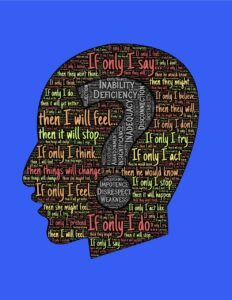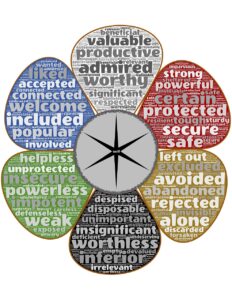TL;DR:
– Mediation techniques encompass mindfulness, visualization, body scan, loving-kindness, and gratitude practices.
– These methods improve well-being, reduce stress, enhance relationships, and boost emotional and mental health.
– Mediation leads to increased self-awareness, empathy, and resilience in individuals.
– Practicing mediation regularly fosters a sense of calm, focus, and connectedness.
– Incorporating these techniques cultivates a positive mindset and promotes overall wellness in life.
Introduction
In our often chaotic lives, the pursuit of calm and harmony can seem elusive. ‘Mediation Techniques’ can be our guide in that journey. With over a decade of experience in self-improvement and relationship advising, I’ve found five powerful methods that enhance well-being and strengthen interpersonal connections. These techniques are profound yet simple, opening up new dimensions of tranquility and mutual understanding. Dive into this blog post to know more and start embracing these life-changing practices.
Unlocking Peace through Mediation Techniques
Have you ever found yourself in a conflict that seems impossible to resolve? The complexities of life sometimes place us in situations where it’s hard to find a peaceful resolution. Developing a firm understanding of mediation techniques might just be the solution you’re seeking.
Understanding Mediation
At its core, mediation is a conflict resolution technique involving a neutral third party – the mediator. The mediator assists the conflicting parties in reaching an agreement by facilitating communication. This in-depth process can transform interpersonal relationships and promote personal growth.
The Power of Mediation Techniques
Mediation techniques can be practiced in personal relationships, workplace conflicts, or major international disputes. Some benefits of these techniques include:
- Reducing stress and anxiety
- Increase in empathy and understanding of others
- Improvement in communication skills
Popular Mediation Techniques
Several mediation techniques have gained popularity over the years. “Caucusing”, or private meetings with each party, is one of them, along with active listening, reality testing, and collaborative problem solving. Certain websites like mediate.com offer many resources on these different techniques.
Learning and Practising Mediation
To gain a deeper understanding and practice of these techniques, enlist the help of a certified mediator, or join training courses such as those provided by The Centre for Effective Dispute Resolution (CEDR). Learning and applying mediation techniques can fundamentally improve both personal growth and interpersonal relationships.
In conclusion, mediation techniques serve as effective tools for conflict resolution, personal growth, and improved relationships. Remember, it’s never too late to learn and improve.
Understanding Mediation Techniques and Their Impact on Relationships
Ever wondered how mediation techniques can positively influence your relationships? Rooted in mindfulness practices, these techniques play a significant role in enhancing communication, boosting empathy, and nurturing emotional intelligence in relationships.
When disagreements and tension arise between two parties, mediation techniques offer a pathway towards resolution. They bridge the gap between differences, allowing room for understanding, compromise, and reconciliation.
The Role of Mediation
In conditions of conflict, one’s emotional intelligence may be compromised, hindering healthy communication. Here enters the role of mediation. Mediators, either internal (self) or external (a relationship advisor/therapist), help manage conflicts by facilitating open and effective communication, ultimately driving a relationship towards improvement.
For instance, professional relationship advisors utilize various mediation techniques like active listening, rephrasing, and creating a neutral platform for discussion, effectively resolving conflicts between parties.
Adopting Mediation Techniques for Self-Improvement
Beyond external application, individuals can adopt mediation techniques for self-improvement. Techniques like mindfulness meditation are simple and can be practiced at home. The benefits are extensive – from enhancing self-awareness and control over emotions to reducing stress and fostering a healthy attitude.
One such example of a meditation technique focal to self-wellbeing is “Loving-Kindness Meditation”, aimed at fostering a positive mindset towards oneself and others. Regular practice has shown to improve empathy levels in individuals, benefiting their interpersonal relationships in the long run.
Applying Mediation Techniques in Relationships
Mediation techniques play a critical role in managing conflicts in relationships too. For instance, by exercising empathetic listening, you can better understand your partner’s perspective, reducing misunderstanding and fostering emotional connection.
Another simple yet impactful technique is practicing gratitude. Research indicates the positive impact of expressing gratitude on relationships, highlighting its role in maintaining relational satisfaction and longevity.
Embracing meditation techniques is not a one-step solution to resolving conflicts but is indeed an effective measure towards continuous self-improvement and relationship enhancement. Integrating these methods in daily life can make a significant difference in how we perceive and handle differences in relationships, fostering a sustainable environment of love, understanding, and growth.
Mastering Mediation Techniques for Well-Being and Self-Improvement
Are you seeking solace in silence? Could you benefit from incorporating calmness into your chaotic schedule? Mediation techniques have been proven as practical tools for enhancing well-being and self-improvement.
The Problem: Stress and Strained Relationships
In today’s fast-paced world, stress is rampant, and relationships often bear the brunt of this pressure. The challenge is finding healthy ways to manage stress and improve relations with our loved ones, colleagues, and ourselves. Fortunately, mediation techniques can be the right solution for these problems.
The Solution: Mediation Techniques
Mediation techniques provide a structured attempt to resolve conflicts in a non-confrontational manner. They guide you towards fostering better communication, understanding, and mutual respect in relationships1. These techniques can also equip you to manage mental clutter and foster self-improvement by boosting focus, patience, and resilience.
• Listening attentively
• Empathizing
• Articulating thoughts and feelings mindfully
• Seeking solutions together
Implementing Mediation Techniques for Well-Being
Integrating mediation techniques into daily routines can enhance our overall well-being. Here is how:
• Start your day with a 10-minute meditation to boost positivity.
• Practice mindful eating to appreciate and savor your meals.
• Dedicate a quiet time for self-reflection in the evening.
Implementing these simple practices could help decrease stress levels, enhance mental clarity, and improve well-being2.
Utilizing Mediation Techniques for Self-Improvement
Self-improvement is an ongoing journey, and mediation techniques provide the road map. They can help improve emotional intelligence, manage negative emotions, increase patience and enhance self-awareness.
Mediation techniques are powerful tools for well-being and self-improvement. They offer us the potential to improve relationships, reduce stress, and navigate life’s challenges with grace and resilience. Harness the power of mediation today to open the door to a healthier, happier you.
Exploring the Power of Mediation Techniques
Have you ever wondered how mediation techniques can improve your well-being and relationships? The power of mediation is often underestimated, yet it serves as a vital tool in personal growth and relationship management.
The primary challenge many face is understanding how to effectively utilize mediation techniques. This section is designed to offer valuable insights on the application and benefits of these techniques.
The Art of Conflict Resolution through Mediation
A primary use of mediation techniques is in conflict resolution. It allows for constructive communication, fostering understanding and empathy instead of fostering animosity. Some of the most common ways to apply these techniques include:
- Active Listening: Ensuring each party feels heard and understood.
- Impartiality: Maintaining neutrality to ensure fair outcomes.
- Effective Communication: Encouraging clear and concise dialogues.
For more insights on conflict resolution through mediation, you can visit this comprehensive resource.
Self-improvement via Mediation Techniques
Mediation techniques are not just for external conflicts; they can also aid in self-improvement. These methods support personal growth by building resilience, mindfulness, and emotional intelligence. Mindfulness and meditation apps like Headspace are terrific resources for those seeking self-improvement.
Remain conscious to integrate these techniques into your daily life. Whether you’re navigating interpersonal conflict or seeking personal growth, embracing mediation techniques is fundamentally valuable. With practice and perseverance, you can harness their power to improve your well-being and relationships.
Mastering Mediation Techniques for A More Balanced Life
Do you ever find yourself tangled in the frenzied chaos of life, struggling to find a perfect balance? If this rings true, then mediation-techniques can help you achieve a sense of equilibrium. Applying these techniques not only strengthens your relationships but also boosts your overall well-being and encourages self-improvement.
The Challenge: Managing Stress and Developing Better Relationships
In today’s fast-paced society, individuals often grapple with high stress levels which may detrimentally affect personal relationships and overall well-being. By using mediation-techniques, you can transform your life from being stress-laden to being more peaceful and productive.
The Solution: Embracing Mediation Techniques
Mediation -echniques include practicing mindfulness, focusing on breath-work, visualizing, and cultivating positive thoughts. Here are some examples:
- Mindfulness exercises help ground you in the present moment, enhancing your focus and concentration.
- Breathing exercises act as natural stress-relievers, calming your mind and body.
- Visualization techniques encourage positivity by allowing you to picture your best life.
- Cultivating positive thoughts fosters healthier relationships and promotes overall well-being.
Remember, incorporating these techniques into your daily routine does not have to be an overwhelming task. Start small, with just five minutes a day, and gradually increase.
With consistency and practice, these mediation-techniques can effectively cushion the impact of life’s challenges, boost your overall well-being, and nurture healthier relationships. It’s time to embrace a better version of you!
(Note: While Mediation techniques are an effective stress-reliever, if you’re dealing with severe stress or anxiety, consider seeking professional help. Many health organizations like Mayo Clinic offer resources to help manage these conditions.)
In our concluding section, we will reflect on the transformative power of mediation-techniques and discuss how they can radically improve the quality of your personal and professional relationships.
Conclusion:
In conclusion, the article has delved into five powerful mediation-techniques for enhancing well-being and relationships. By practicing mindfulness, active listening, fostering empathy, setting boundaries, and utilizing communication strategies, individuals can navigate conflicts and cultivate healthier connections. Incorporating these mediation-techniques can lead to greater understanding, harmony, and personal growth. Dive deeper into the transformative world of Mediation Techniques to uncover more strategies for a balanced and fulfilling life. Start your journey towards improved relationships and well-being today!













